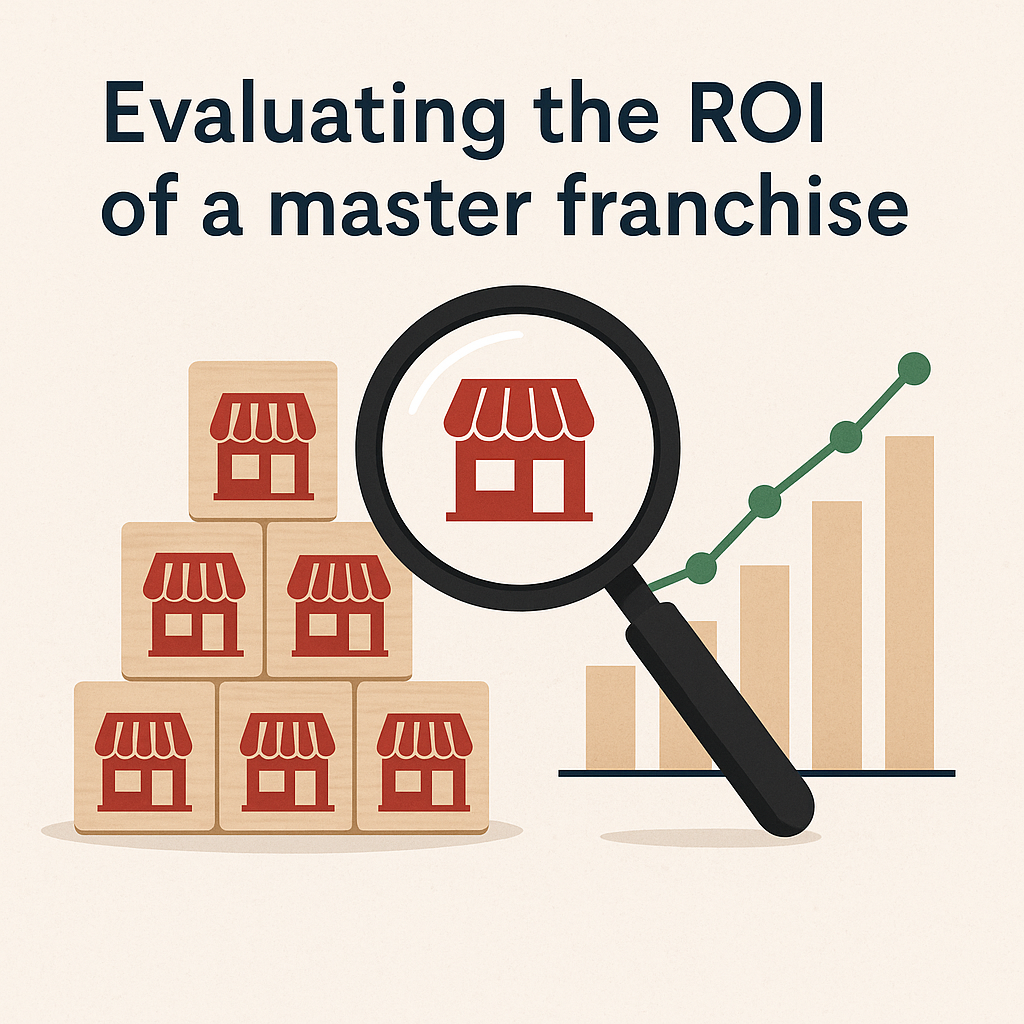Investing in a master franchise is a substantial financial commitment that requires careful planning and foresight.
While the potential for returns can be significant, especially when entering a lucrative market, the range of costs involved must be thoroughly understood to ensure the venture’s success. A master franchisee takes on the responsibility not only of operating their own franchise units but also of developing a network of sub-franchisees within a specific territory. This dual role involves a variety of costs beyond the initial entry fees, covering everything from network development and marketing to day-to-day operational expenses. Here’s an in-depth look at the main costs associated with a master franchise.
Initial Entry Fees
The first and often most significant financial hurdle in acquiring a master franchise is the entry fee, which grants the franchisee exclusive rights to develop and operate the brand within a defined territory. These fees can range from hundreds of thousands to several million euros, depending on factors such as the brand’s reputation, market potential, and the size of the territory.
The master franchise entry fee is typically higher than that of a traditional franchise, reflecting the broader scope of responsibilities the master franchisee assumes. This fee represents the cost of accessing the franchisor’s established business model, brand, and operating systems, and it is essentially the price of purchasing the opportunity to act as the franchisor’s representative in a new region or country.
The size of the territory plays a crucial role in determining the entry fee. A master franchisee for a well-known global brand in a large and promising market, such as a populous country or region with a high potential for growth, will generally face higher entry fees than one for a smaller or less-developed territory. Additionally, brands with an established international presence tend to command higher fees, as they offer a proven business model and global brand recognition.


Network Development Costs
Once the master franchise agreement is in place, the next major investment is in network development. The master franchisee is responsible for expanding the brand’s presence within the territory by either opening new franchise outlets or recruiting and supporting sub-franchisees. This involves a range of costs related to recruitment, training, and setting up the necessary infrastructure to support the network.
Recruitment of sub-franchisees is a key aspect of network development, and it can involve significant expenses. This includes advertising the franchise opportunity, evaluating potential franchisees, and conducting interviews or selection processes. Once sub-franchisees are recruited, the master franchisee is responsible for their training, which may require developing training programs, hiring trainers, and setting up training facilities. In some cases, the franchisor will assist with initial training, but the master franchisee will typically bear much of the cost.
Another essential part of network development is setting up a local support structure. This may include establishing regional offices, hiring management and support staff, and creating sales teams to oversee the growth of the franchise network. Additionally, technological tools are needed to manage and monitor the performance of the sub-franchisees, which may involve investing in software, communication platforms, and customer relationship management (CRM) systems.
In larger territories, where the master franchisee is tasked with developing multiple franchise units over a large geographic area, there may also be significant logistical costs related to overseeing the franchise network. This could include travel expenses, regional management, and coordination across various cities or regions. It’s essential for the master franchisee to build a robust infrastructure to support sub-franchisees effectively and maintain the quality of the brand.
Ongoing Royalties
In most master franchise agreements, the master franchisee is required to pay ongoing royalties to the franchisor throughout the duration of the contract. These royalties are typically calculated as a percentage of the revenue generated by the sub-franchisees and represent a recurring cost that the master franchisee must account for.
The royalty rate can vary depending on the specific agreement and the performance of the franchise network. In many cases, the rate is fixed as a percentage of the gross sales of each franchise unit. However, some agreements may include sliding scales or performance-based adjustments, where the royalty percentage decreases as the network expands or as certain revenue milestones are achieved.
These royalty payments represent an ongoing cost, but they also serve as a reflection of the success of the franchise network. As the master franchisee grows the network and increases revenues, the royalties paid to the franchisor will naturally increase as well. This creates an incentive for both the master franchisee and the franchisor to continue working closely together to ensure the franchise network’s long-term success.


Marketing and Promotional Investments
Marketing and promotion are essential to the success of any master franchise, particularly when entering a new market. The master franchisee is typically responsible for launching and promoting the brand within the territory, which can involve a substantial investment in both local and regional marketing campaigns.
This includes the costs of running advertising campaigns to build brand awareness and attract potential franchisees as well as customers. These campaigns might involve a combination of digital marketing (social media, SEO, email marketing), traditional advertising (TV, radio, print), and public relations efforts. Launch events, sponsorships, and local community engagement initiatives may also be necessary to establish the brand in the market.
In addition to brand promotion, the master franchisee may need to invest in adapting marketing materials to the local culture and consumer preferences. This could involve translating existing materials, developing new promotional content, and customizing messaging to align with the expectations of the local audience. If the franchisor provides central marketing support, the master franchisee may still be required to contribute financially to these efforts, especially in the early stages of market entry.
Another important consideration is ongoing marketing contributions, which are often stipulated in the master franchise agreement. The master franchisee may be required to contribute to a central marketing fund managed by the franchisor, which is used to promote the brand at a global or regional level. These contributions are typically calculated as a percentage of sales and are separate from the local marketing efforts that the master franchisee undertakes independently.
Operational Expenses
Beyond the initial and development costs, day-to-day operational expenses must be anticipated. These recurring expenses are essential for the ongoing management of the master franchise and the network of sub-franchisees.
One of the largest operational costs is rent for office space, training centers, and, in some cases, franchise locations. The cost of rent can vary significantly depending on the location and size of the territory. In larger metropolitan areas, rent for prime locations may be considerably higher, whereas in smaller or less-developed markets, these costs may be lower.
Salaries for staff, including management, administrative support, trainers, and sales teams, are another major operational expense. It is important to recruit and retain a skilled workforce to manage the network effectively and ensure that franchisees receive the support they need to succeed. Depending on the size of the territory and the number of sub-franchisees, these staffing costs can add up quickly.
Supply costs are also a critical factor, particularly in industries such as retail, food service, or hospitality. The master franchisee may be responsible for managing the supply chain and ensuring that sub-franchisees have access to the necessary products and materials. This may involve negotiating with suppliers, managing inventory, and overseeing distribution logistics. In some cases, the master franchisee may need to establish local or regional supply networks to ensure that franchisees can operate efficiently and meet the brand’s standards.
Additionally, legal and administrative costs should be considered, as the master franchisee may need to engage local legal experts, accountants, and consultants to navigate the complexities of operating in a foreign market. These costs are especially relevant when dealing with local regulations, tax compliance, intellectual property protections, and contract negotiations with sub-franchisees.




